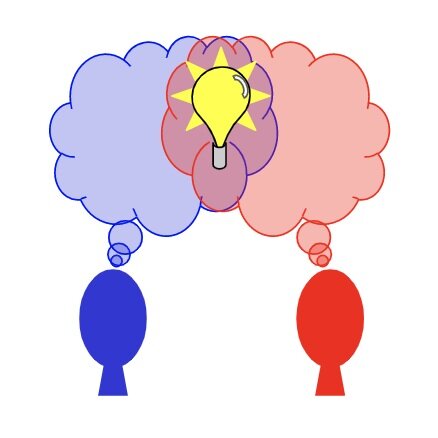
Mission & Focus Skills
Our Mission
CreatED strives to create student-centered, authentic content in collaboration with teachers. Never losing sight of what is most important--the student and teacher experience in the classroom--CreatED seeks to augment the resources and skills teachers already have to ensure their students are equipped with 21st-century skills, fully engaged with the course material, and leave class as curious, empathetic citizens of the world.
CreatED Focus Skills
Curiosity
One of the goals of formal education, ranging from the context of a single activity in one classroom to the entirety of a K-12 experience, should be to pique students’ interest in learning, inspiring them to seek out more knowledge and develop their skills independently and with others outside of school requirements. As teachers, we want students to self-motivate, so that when they move on into adulthood, they do not allow their education to stagnate wherever their formal schooling left off.
Empathy
Secondary-level curricula hardly ever focus on the emotional element of learning, but if we are preparing students to be well-rounded adults who leave the world better than they found it, empathy is critical. Students should not just learn facts, but how those facts are connected to them and to other people. They should leave school with the understanding that we are all interconnected and responsible for each other, and that operating entirely from your own perspective is not only limited, but actively harmful.
Recognizing Bias
No matter the subject, students should know where their information is coming from and why that source matters—what impact does it have on the information they are receiving? What impact does it have on the information they are not receiving? Where else do they need to look to corroborate the information they are getting? With so much information carried around in their pockets, students need to approach new information with both an open mind and a healthy dose of skepticism.
Creative Problem-Solving
Our students should leave school equipped to address the issues facing them today—many of them the same problems that have plagued our society since the beginning of time, and many of them new challenges brought on by the rapid pace of technological development and the excesses of human activity. Our students should not just be able to think outside the box; they should be encouraged to throw the box out entirely, bringing ideas to the table that will provide more than a temporary fix to systems that no longer work or were designed to work for only some.
Synthesis
Students are bombarded with massive quantities of information every day. They must be able to see how that information overlaps, interweaves, and builds on itself to construct an accurate and nuanced body of knowledge for themselves.
Analysis
Students must leave school with the ability to look beyond the surface of any information they receive. They should be able to grapple with how information fits (or doesn’t) with their own preconceived notions. They should be able to draw connections and think critically. They should be able to apply their own interpretations, developing ideas and opinions founded on well-thought-out evidence.
Collaboration
The modern world is more interconnected than ever. In order to succeed, students must have the capacity to work well with other people. They need to be able to recognize strengths in themselves in others, lead a team, operate for the good of the whole, compromise, and create together. Working with, not against, others will lead to stronger, more sustainable solutions.
Communication
Once students have their big ideas, they must be able to communicate them with others clearly and convincingly. Students have to be able to write, speak, and create digital content that effectively communicates their message.









